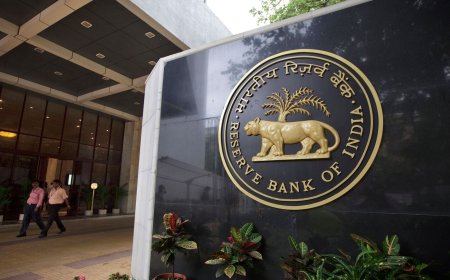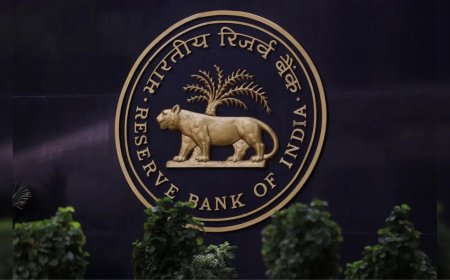Sebi panel on clearing corporations to explore self-sufficiency, transaction charges
SEBI forms a panel to review the financial independence and transaction charges of clearing corporations. The move aims to enhance transparency and market efficiency.

In a significant move aimed at strengthening the backbone of India's capital market infrastructure, the Securities and Exchange Board of India (SEBI) has initiated a comprehensive review through a newly formed panel that will examine the financial self-sufficiency and transaction charges of clearing corporations. The review is part of SEBI’s broader agenda to enhance transparency, cost-efficiency, and the long-term sustainability of market intermediaries that play a pivotal role in post-trade settlement.
Panel to Focus on Key Operational Metrics
According to sources close to the development, the SEBI-constituted committee will analyze current revenue models, cost structures, and reliance on market infrastructure institutions (MIIs), such as stock exchanges. The core objective is to explore whether clearing corporations — entities responsible for the settlement of trades and ensuring risk-free transactions — can evolve towards a model of self-reliance and operational independence.
A senior SEBI official remarked, “The aim is to ensure that clearing corporations operate as financially robust and autonomous entities. At present, there is significant dependency on affiliated exchanges for revenue, primarily through transaction charges. This dependency must be assessed in light of international best practices and investor interest.”
Transaction Charges Under the Scanner
Transaction charges levied by clearing corporations have long been a topic of debate among brokers and investors. Market participants have expressed concerns that these fees, which are passed on to clients, vary significantly and may lack transparency.
The SEBI panel is expected to propose a framework that standardizes transaction costs, introduces performance benchmarks, and potentially caps excessive fees. Analysts believe this could lead to more predictable and competitive pricing for retail and institutional participants alike.
"Clearing charges currently form a non-trivial portion of total trading costs for high-frequency traders and institutions. Rationalizing and bringing uniformity in these charges could greatly improve cost efficiency and foster deeper market participation," noted Amit Mehra, a senior equity strategist at Dronacharya Capital.
Clearing Corporations and Their Critical Role
Clearing corporations, such as the Indian Clearing Corporation Limited (ICCL), NSE Clearing Limited (NSCCL), and MCXCCL, are integral to market functioning. They provide guarantee of trade settlement, mitigate counterparty risk, and ensure orderly functioning in times of volatility.
Currently, most Indian clearing corporations derive their primary revenue through transaction-linked charges collected from trading members. With trade volumes surging — especially in the derivatives segment — revenue has expanded, but so have concerns about cost opacity and surplus accumulation without reinvestment mandates.
“The committee’s focus on aligning profit generation with infrastructure reinvestment and service quality improvement is a welcome move. A self-sufficient, yet accountable clearing ecosystem is essential to future-proof Indian markets,” said Kavita Rao, Professor of Financial Systems at IIM Bangalore.
Global Comparisons & the Road Ahead
Globally, clearing corporations operate under stringent regulatory oversight, with well-defined norms on pricing, capital adequacy, and segregation from trading venues. For instance, the U.S. and EU jurisdictions have increasingly emphasized interoperability, risk capital buffers, and limited dependence on exchange-linked revenue.
The SEBI panel’s agenda aligns with these standards, and recommendations are expected to factor in global practices from institutions like DTCC (U.S.), LCH (UK), and Eurex Clearing (Germany).
According to Arvind Mathur, an independent financial consultant, “SEBI’s move is timely, especially as India aims for GIFT City and IFSC to become global financial hubs. Transparent, competitive, and resilient clearing operations will be key to attracting foreign capital.”
Investor & Broker Implications
For investors, particularly retail participants, the downstream impact could manifest in the form of lower transaction costs and greater clarity on how clearing fees are determined. For brokers, this could mean streamlined billing structures and potentially reduced compliance complexities.
However, the shift may also entail temporary cost adjustments for MIIs, which may need to recalibrate their revenue sharing arrangements and technology reinvestment plans.
An industry white paper is expected to be released for public consultation in the coming quarter. Market bodies like ANMI (Association of National Exchanges Members of India) and BBF (BSE Brokers Forum) will likely provide feedback on fee restructuring proposals.
Market Context & Future Outlook
With India's markets witnessing unprecedented growth in demat accounts (now surpassing 17 crore), expanding derivatives turnover, and an influx of retail participation, the importance of strengthening post-trade systems cannot be overstated.
Analysts believe the SEBI panel’s recommendations could usher in a new era of cost transparency and regulatory accountability.
"Much like the broker margin and PMS fee reforms, this initiative could redefine investor confidence. Investors will be watching how quickly SEBI translates committee findings into actionable reform," said Shruti Sharma, Head of Policy Research at FinPolicy Group.
As the SEBI panel embarks on this pivotal evaluation, the capital market ecosystem braces for reforms that could reshape the economics of clearing. By addressing operational independence, revenue transparency, and long-term viability, the regulator aims to make India’s financial markets not just broader, but deeper and more resilient.
What's Your Reaction?
 Like
0
Like
0
 Dislike
0
Dislike
0
 Love
0
Love
0
 Funny
0
Funny
0
 Angry
0
Angry
0
 Sad
0
Sad
0
 Wow
0
Wow
0












































































